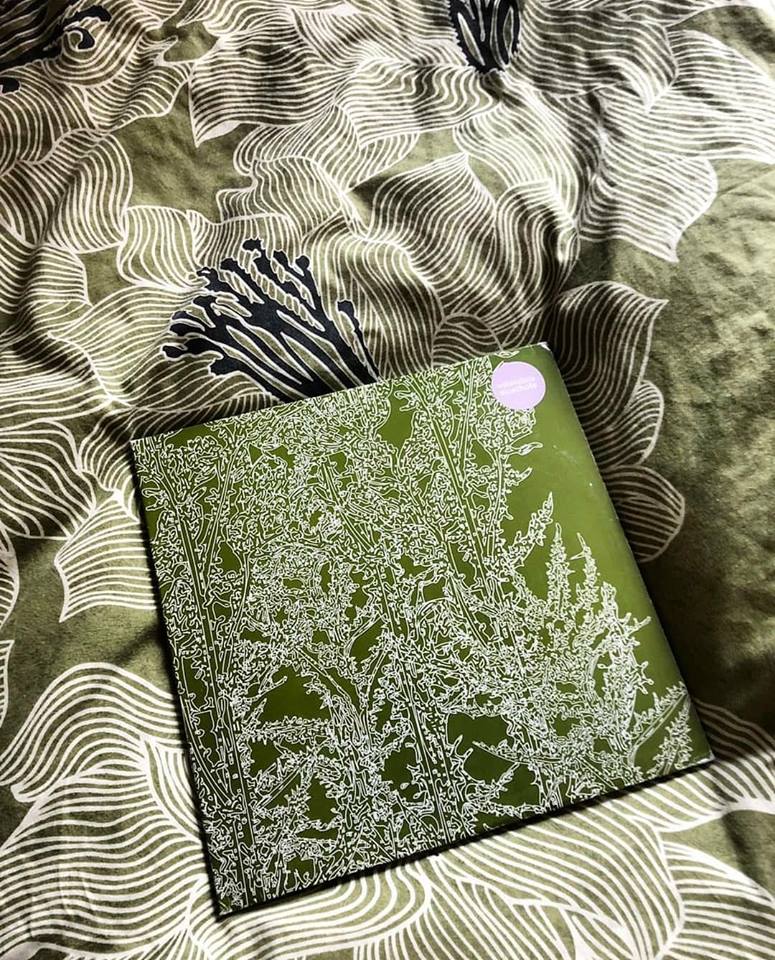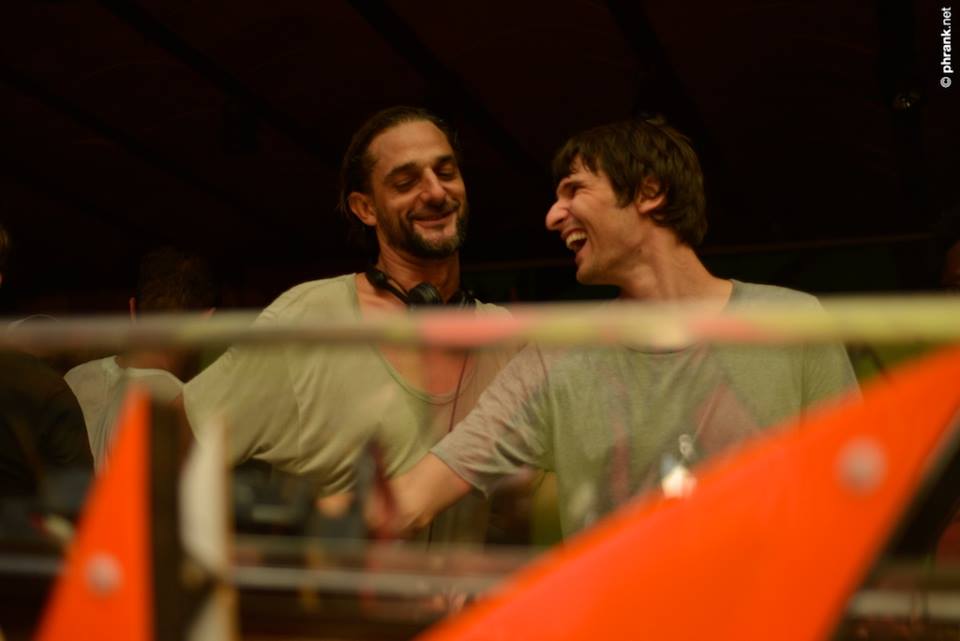“Holy crap! You have Alcachofa?!”
“Yeah man. Pop it on after this one’s finished playing out.”
“You actually have Alcachofa?! I’m holding Ricardo Villalobos’ Alcachofa in my hands!”
The above exchange is from a friend’s party I attended last year, whilst digging through his record collection, there was one sleeve that stood out even in a stack of thirty, forty records. The design of the sleeve could be described as low quality yet it remains mesmerising and distinctive, and that’s not just because it’s one underground music’s defining albums.
On the 23rd September, 2003, Frankfurt based label Playhouse released Chilean producer Ricardo Villalobos’ album ‘Alcachofa’. It can arguably be considered the greatest minimal album of all-time and is certainly up there with the best underground albums of all-time. It’s a piece of art that in the years following has come to shape an entire genre as well as shift and modify house and techno. It has become the benchmark that every great piece of electronic music is measured against.

Playhouse at the time was no chump label. At the time of Alcachofa’s release, Playhouse had 82 releases along with a number of mix CDs and compilations. Producers such as Melchior Productions, Isolee and label co-founder Roman Flügel had released music to acknowledgable degrees of success. But the label hadn’t seen anything like it’s 83rd release which would go on to push the label to new standards and new heights.
In regards to the man himself, Ricardo had been releasing music since 1995 and DJing long before then. He had a whole host of releases under his belt, such as his debut album The Contempt as well N-DRA, 808 The Bassqueen and Que Belle Epoque. The Chilean certainly wasn’t an unknown quantity as the aforementioned records were successful in varying degrees but Villalobos hadn’t hit the heights of some DJs and producers at the time. As with most of his productions, those records grew to become more appreciated over time. Unsurprisingly, Ricardo was ahead of his time.
To understand what Alcachofa brought to minimal, some context is needed. As the 1990s gave way to the 2000s, Techno was losing its crown as the King of underground music. People had been dancing to 140+ bpm for most of the decade but an improvement in production techniques and equipment meant not as many beats had to be used to create a solid rhythm, leading to techno becoming much slower.

The increase in production techniques gave way to a more complex sounding genre – minimal. As is the case today, popularity can lead to values being lost and a lot of pretenders sneaking in, unfortunately, that’s just what happened to minimal.
Minimal was in a very delicate position and was losing ground as the people’s preferred genre in the early 2000’s. The music was quickly losing it’s soul and had become a parody of itself. Parties were full of incredibly soulless and bordering on comical takes on minimal music, full of people who there for social reasons rather than the music.
Then came Alcachofa.
It may actually be reductive of the album to label it as ‘minimal’, ‘house’ or ‘techno’ as it doesn’t sound even resemble anything that preceded or followed it. It’s as if Villalobos spent his formative years listening to the status quo in music and decided to tear it down by creating the Frankenstein of the musical world. It’s hard to sound totally unique in music when there are so many influences, but no collection of music sounds even similar to it, before 2003 or after.
A side ‘Easy Lee’ would go on to become one of the most revered and adored tracks of Villalobos’ discography. The key features of the track are of course the vocals present throughout, which in typical RV fashion have been distorted and twisted to sound almost inhuman. The bassline is unorthodox as it absorbs the percussion to become something of a mutant. The snares, clicks and pops throughout the track come together along with the vocals and bassline to create one of the most mindboggling tracks in underground music history.
Every track within Alcachofa’s grooves has a unique talking point. If Y.G.H were to be remastered and refined, you could easily believe it be a 2018 track from one of the scene’s leading producers.
The Chilean has never been afraid to pull inspirations or sample from the wider world of music, whether that be a Serbian brass band for the 37 minute long ensemble ‘Fizheuer Zieheuer’ or Polish musician Krzysztof Scieranski for Waiwarinao on Alcachofa. Scieranski’s bass guitar provides an incredibly down to earth melody which stood out at the time and perhaps stands out even more now as hardware dominates the musical landscape with little to no samples such as the Scieranski one used.
Then, of course, there is Dexter, the closing track of Alcachofa. It’s not hyperbole to say this is, all things considered, Villalobos’ finest track. In the fifteen years we’ve been able to listen to Dexter, I don’t believe there’s another track that is like it or can be compared to it.
Emotion can be hard to create in underground music. A lot of music is simply made for the dancefloor, but when you come across tracks with the emotional capital of Dexter, it’s hard not to feel that your heart and soul should be put into the music you create.
There’s no beating around the bush, Dexter is an incredibly dark and eery track. The first two minutes are surprisingly simple, centred around distorted claps and a rather simple and consistent bassline. However, after 2 minutes and forty seconds, Dexter’s dark colours reveal themselves. The strings that now accompany the bassline are more than enough to send shivers down your spine and the combination of all the percussion come together to produce one of the most harrowingly brilliant tracks to ever grace underground music.
The legacy of Alcachofa is essentially impossible to pin down. There’s no metric or statistical value that can be drawn up to see how this album has affected the musical landscape in which it was brought into. You can debate with your friends whether Dexter is Villalobos’ finest work or not, there’s not particularly a correct answer.
However, if you listen close enough, the 2003 album’s influence can be traced everywhere. Since the turn of the decade, Romania’s minimal scene has risen to become one of underground music’s most creative and popular scenes. Putting aside the fact Villalobos himself helped bring the likes of Raresh, Rhadoo and Petre Inspirescu to the forefront of music, his influence can be heard throughout minimal music coming out of Romania especially but well beyond that.

Whenever you hear a scratch, a click, a mindboggling pop or a heavily distorted vocal, these are all features that are connected by roads leading to Alcachofa. What makes these features all the more intriguing is that incorporating odd clicks into your track isn’t going to make or break it, it’s not even a particularly danceable or emotive feature. But Villalobos has always spoken about using the full spectrum of sounds, the weirder the sound, the more wonderful he most likely views it.
At the time Alcachofa was a revered album at the time but it’s legacy has grown beyond what anyone at the time could have imagined. Albums are a rarity in underground music, so to have an album that has stood the test of time whilst influencing an entire genre with multiple subgenres, well, that’s something that could only be done by the likes of Ricardo Villalobos.










![Premiere: B1 – Simic – An Introduction To Frost [AR008]](https://trommelmusic.com/wp-content/uploads/2024/10/1095022-324x235.jpg)
![Premiere: A1 – Lorenzo Fortino – Notte Di San Lorenzo [FUTOPMUSICA6]](https://trommelmusic.com/wp-content/uploads/2024/10/Futop-Musica_6-Cover-Front-Lorenzo-Fortino-100x70.jpg)

![Premiere: A1 – Fedo – Tunisian Rex [CHCH02]](https://trommelmusic.com/wp-content/uploads/2024/10/CHCH02-100x70.jpg)
![Premiere: A1 – BootyBart – BootyBart 04.1 [BOOTYBART04]](https://trommelmusic.com/wp-content/uploads/2024/10/BootyBart-04-Paolo-Bartolomeo-100x70.jpg)
![Premiere: B1 – Moulin – Japanese TeleTom (Nintendo Mix) [BMR003]](https://trommelmusic.com/wp-content/uploads/2024/10/BMR003-BSIDE-100x70.jpg)
![Premiere: A1 – Duowe – Tit For Tat [STRWB011]](https://trommelmusic.com/wp-content/uploads/2024/10/1099306-100x70.jpg)
![Premiere: A1 – Komponente – Acid Explorer [TP007]](https://trommelmusic.com/wp-content/uploads/2024/10/1074596-100x70.jpg)
![Premiere: A1 – Cruz – Interstellar Odyssey [BLOOP027]](https://trommelmusic.com/wp-content/uploads/2024/10/DIGITAIS_B027_A-CRUZ-100x70.jpeg)
![Premiere: 3 – Tommy Vicari Jnr – Viz a Viz [FONT007]](https://trommelmusic.com/wp-content/uploads/2024/10/EP-COVER-Matthias-Kochmann-100x70.jpg)